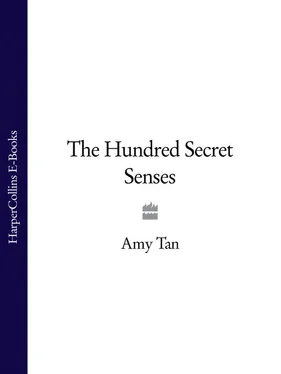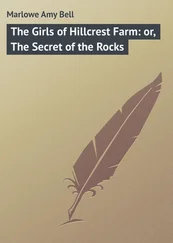The weirdest of her abilities, I think, has to do with diagnosing ailments. She can tell when she shakes hands with strangers whether they’ve ever suffered a broken bone, even if it healed many years before. She knows in an instant whether a person has arthritis, tendinitis, bursitis, sciatica – she’s really good with all the musculoskeletal stuff – maladies that she calls ‘burning bones,’ ‘fever arms,’ ‘sour joints,’ ‘snaky leg,’ and all of which, she says, are caused by eating hot and cold things together, counting disappointments on your fingers, shaking your head too often with regret, or storing worries between your jaw and your fists. She can’t cure anybody on the spot; she’s no walking Grotto of Lourdes. But a lot of people say she has the healing touch. Like her customers at Spencer’s, the drugstore in the Castro neighborhood where she works. Most of the people who pick up their prescriptions there are gay men – ‘bachelors,’ she calls them. And because she’s worked there for more than twenty years, she’s seen some of her longtime customers grow sick with AIDS. When they come in, she gives them quickie shoulder rubs, while offering medical advice: ‘You still drink beer, eat spicy food? Together, same time? Wah! What I tell you? Tst! How you get well do this? Ah?’ – as if they were little kids fussing to be spoiled. Some of her customers drop by every day, even though they can receive home delivery free. I know why. When she puts her hands on the place where you hurt, you feel a tingling sensation, a thousand fairies dancing up and down, and then it’s like warm water rolling through your veins. You’re not cured, but you feel released from worry, becalmed, floating on a tranquil sea.
Kwan once told me, ‘After they die, the yin bachelors still come visit me. They call me Doctor Kwan. Joking, of course.’ And then she added shyly in English: ‘Maybe also for respect. What you think, Libby-ah?’ She always asks me that: ‘What you think?’
No one in our family talks about Kwan’s unusual abilities. That would call attention to what we already know, that Kwan is wacky, even by Chinese standards – even by San Francisco standards. A lot of the stuff she says and does would strain the credulity of most people who are not on antipsychotic drugs or living on cult farms.
But I no longer think my sister is crazy. Or if she is, she’s fairly harmless, that is, if people don’t take her seriously. She doesn’t chant on the sidewalk like that guy on Market Street who screams that California is doomed to slide into the ocean like a plate of clams. And she’s not into New Age profiteering; you don’t have to pay her a hundred fifty an hour just to hear her reveal what’s wrong with your past life. She’ll tell you for free, even if you don’t ask.
Most of the time, Kwan is like anyone else, standing in line, shopping for bargains, counting success in small change: ‘Libby-ah,’ she said during this morning’s phone call, ‘yesterday, I buy two-for-one shoes on sale, Emporium Capwell. Guess how much I don’t pay. You guess.’
But Kwan is odd, no getting around that. Occasionally it amuses me. Sometimes it irritates me. More often I become upset, even angry – not with Kwan but with how things never turn out the way you hope. Why did I get Kwan for a sister? Why did she get me?
Every once in a while, I wonder how things might have been between Kwan and me if she’d been more normal. Then again, who’s to say what’s normal? Maybe in another country Kwan would be considered ordinary. Maybe in some parts of China, Hong Kong, or Taiwan she’d be revered. Maybe there’s a place in the world where everyone has a sister with yin eyes.
Kwan’s now nearly fifty, whereas I’m a whole twelve years younger, a point she proudly mentions whenever anyone politely asks which of us is older. In front of other people, she likes to pinch my cheek and remind me that my skin is getting ‘wrinkle up’ because I smoke cigarettes and drink too much wine and coffee – bad habits she does not have. ‘Don’t hook on, don’t need stop,’ she’s fond of saying. Kwan is neither deep nor subtle; everything’s right on the surface, for anybody to see. The point is, no one would ever guess we are sisters.
Kevin once joked that maybe the Communists sent us the wrong kid, figuring we Americans thought all Chinese people looked alike anyway. After hearing that, I fantasized that one day we’d get a letter from China saying, ‘Sorry, folks. We made a mistake.’ In so many ways, Kwan never fit into our family. Our annual Christmas photo looked like those children’s puzzles, ‘What’s Wrong with This Picture?’ Each year, front and center, there was Kwan – wearing brightly colored summer clothes, plastic bow-tie barrettes on both sides of her head, and a loony grin big enough to burst her cheeks. Eventually, Mom found her a job as a bus-girl at a Chinese-American restaurant. It took Kwan a month to realize that the food they served there was supposed to be Chinese. Time did nothing to either Americanize her or bring out her resemblance to our father.
On the other hand, people tell me I’m the one who takes after him most, in both appearance and personality. ‘Look how much Olivia can eat without gaining an ounce,’ Aunt Betty is forever saying. ‘Just like Jack.’ My mother once said, ‘Olivia analyzes every single detail to death. She has her father’s accountant mentality. No wonder she became a photographer.’ Those kinds of comments make me wonder what else has been passed along to me through my father’s genes. Did I inherit from him my dark moods, my fondness for putting salt on my fruit, my phobia about germs?
Kwan, in contrast, is a tiny dynamo, barely five feet tall, a miniature bull in a china shop. Everything about her is loud and clashing. She’ll wear a purple checked jacket over turquoise pants. She whispers loudly in a husky voice, sounding as if she had chronic laryngitis, when in fact she’s never sick. She dispenses health warnings, herbal recommendations, and opinions on how to fix just about anything, from broken cups to broken marriages. She bounces from topic to topic, interspersing tips on where to find bargains. Tommy once said that Kwan believes in free speech, free association, free car-wash with fill’er-up. The only change in Kwan’s English over the last thirty years is in the speed with which she talks. Meanwhile, she thinks her English is great. She often corrects her husband. ‘Not stealed ,’ she’ll tell George. ‘ Stolened .’
In spite of all our obvious differences, Kwan thinks she and I are exactly alike. As she sees it, we’re connected by a cosmic Chinese umbilical cord that’s given us the same inborn traits, personal motives, fate, and luck. ‘Me and Libby-ah,’ she tells new acquaintances, ‘we same in here.’ And she’ll tap the side of my head. ‘Both born Year the Monkey. Which one older? You guess. Which one?’ And then she’ll squash her cheek against mine.
Kwan has never been able to correctly pronounce my name, Olivia. To her, I will always be Libby-ah, not plain Libby, like the tomato juice, but Libby-ah, like the nation of Muammar Qaddafi. As a consequence, her husband, George Lew, his two sons from a first marriage, and that whole side of the family all call me Libby-ah too. The ‘ah’ part especially annoys me. It’s the Chinese equivalent of saying ‘hey,’ as in ‘Hey, Libby, come here.’ I asked Kwan once how she’d like it if I introduced her to everyone as ‘Hey, Kwan.’ She slapped my arm, went breathless with laughter, then said hoarsely, ‘I like, I like.’ So much for cultural parallels, Libby-ah it is, forever and ever.
I’m not saying I don’t love Kwan. How can I not love my own sister? In many respects, she’s been more like a mother to me than my real one. But I often feel bad that I don’t want to be close to her. What I mean is, we’re close in a manner of speaking. We know things about each other, mostly through history, from sharing the same closet, the same toothpaste, the same cereal every morning for twelve years, all the routines and habits of being in the same family. I really think Kwan is sweet, also loyal, extremely loyal. She’d tear off the ear of anyone who said an unkind word about me. That counts for a lot. It’s just that I wouldn’t want to be closer to her, not the way some sisters are who consider themselves best friends. As it is, I don’t share everything with her the way she does with me, telling me the most private details of her life – like what she told me last week about her husband:
Читать дальше












